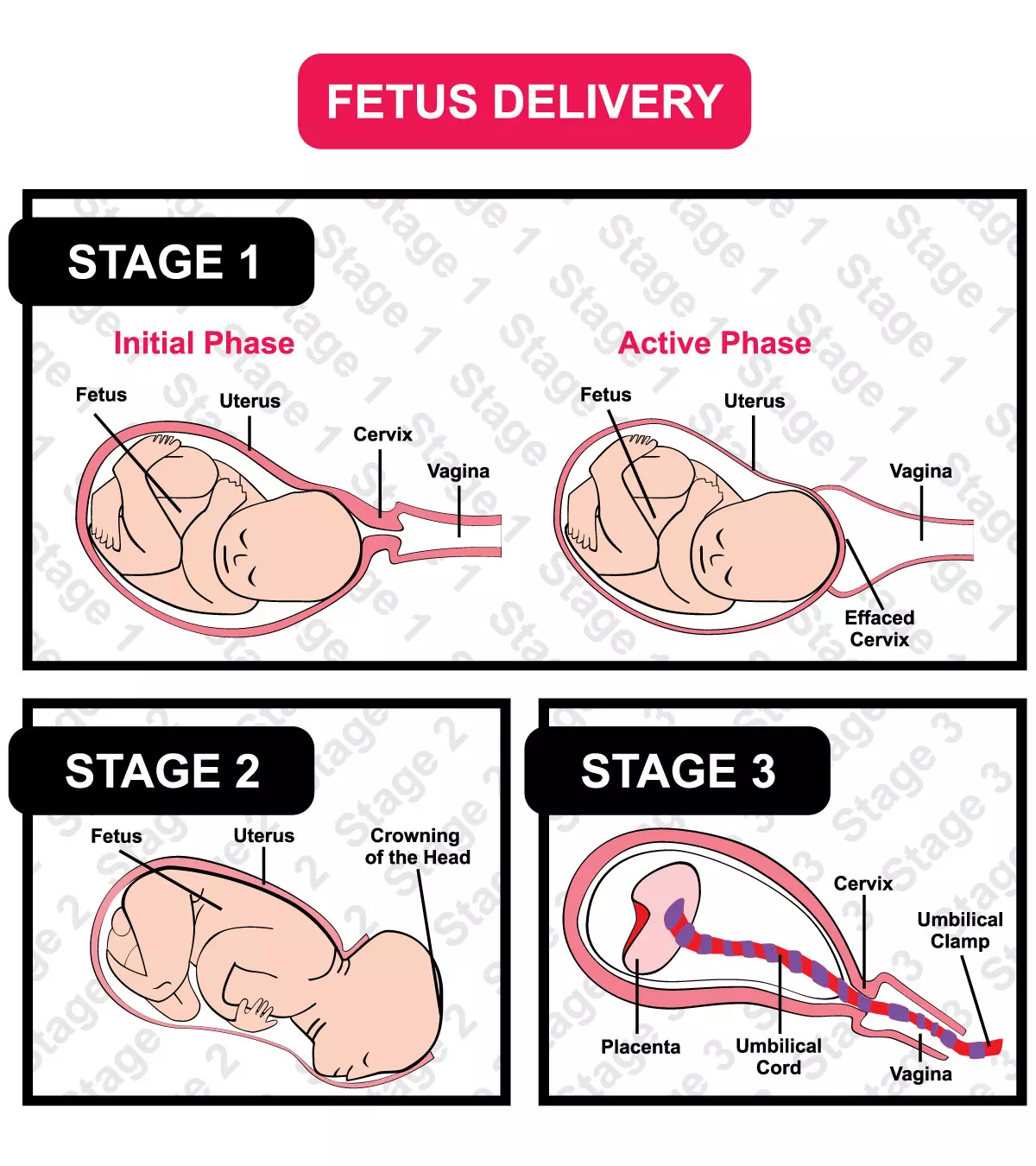
Image: ShutterStock
Pregnancy could change the way a woman could think and feel. Moreover, certain factors that cause anger during pregnancy could crop up spells of disgust and rage at most unexpected times. Pregnancy brings a mix of emotions, from joy and excitement to anxiety and anger. Recognizing and understanding these feelings is important for expectant mothers to manage them with ease. Plus, the hormonal surge and altering bodily processes during pregnancy may add to the mood swings and changes in the overall health and wellbeing of a woman, impacting personal relationships (1). Reading this post may help you explore the possible triggers that cause anger and tips to manage it during pregnancy.
Key Pointers
- Anger can result from hormonal changes, inequality, physical discomfort, and fear.
- Long-term anger can cause premature birth, problematic birth, and low-weight babies.
- Meditating, deep breathing, changing thought patterns, and adopting a healthy lifestyle can alleviate anger.
- Planning your day and participating in support forums can help dissipate anger.
Stress Factors That Cause Anger During Pregnancy
1. Hormonal changes:
Sudden changes in hormones during pregnancy make women more susceptible to emotions such as anger and mood swings. They trigger anger out of issues that have been bothering you for some time. Your bodily changes make such feeling intense.
Identify such triggers and make an effort to resolve them so that they do not precipitate into an unpleasant situation. Take a deep breath before you respond to any upsetting situation.
2. Inequality:

Image: IStock
Sociology professor Barbara Katz Rothman says that women face inequality and discrimination during pregnancy. For working women, employers make it difficult to grant maternity leave. In some cases, partners may not be interested in having a child, will be unsupportive and not perform their share of chores at the home.
Pregnant women are thus forced to struggle with daily life-work issues and begin to worry. These common sources can lead to anger.
In the book, What to expect when you’re expecting, Heidi Murkoff writes that most couples frequently fight during pregnancy due to the above issues. The best way to cope with anger and anxiety is to fight against discrimination at the workplace, and at home talk to your partner about your expectations from him.
3. Discomfort:
Discomforts such as nausea, fatigue, and abdominal muscle pain, backache and muscle cramps are a daily affair during pregnancy.
These could increase the tendency to get angry, especially when you feel most of your needs are not being met due to changes in lifestyle and personal expectations that are not fulfilled.
You should take proactive measures to create a comfortable environment for yourself. For instance, make sure you get good sleep by arranging a comfortable bed and eat bland food so that it helps prevent nausea. Get yourself a spa or any relaxation treatment to ease the physical stress.
4. Fear:

Image: Shutterstock
Anger is often used as a shield to overcome fear. Pregnancy comes with a range of concerns from fear of labor to birth defects, illnesses and parenting a child (2).
Does Anger Affect Your Unborn Child?
Author and pregnancy health care guru Dr. Miriam Stoppard, in her New Pregnancy and Birth Book, writes that a baby experiences not only external stimuli but also mother’s emotions which trigger the release of certain chemicals into the bloodstream. These chemicals travel across the placenta to the unborn baby within a few seconds of the mom feeling an emotion.
Long-term anger can cause detrimental effects in an unborn child, such as premature birth (delivery before 37 weeks), problematic birth, or low weight babies.
The studies also state that the stress created in the womb can affect the baby’s disposition (3). Children whose mothers experienced high stress during pregnancy, especially in their first trimester, are known to manifest signs of irritability and depression. Also, severe anxiety in pregnancy can double the chances of bearing a hyperactive child (4).
If fear surrounds you, check with a mental healthcare professional who has experience in dealing with such issues in pregnant women. Also, talk to your obstetrician about ways to minimize fear and keep reminding yourself that majority of pregnancies resulted in healthy and happy babies.
 Be watchful
Be watchfulHow To Deal With Anger During Pregnancy?
According to the American Psychological Association (APA), there are some simple measures you can implement to control your anger, or keep it at bay (5).
1. Relaxation:

Image: IStock
Simple relaxation techniques like deep breathing and relaxing imagery are very useful. They are also taught in childbirth education classes. You can try:
- Deep breaths from your diaphragm. Monitor your breath that is coming from deep inside of your body and not just from your chest.
- Keep reminding yourself to “keep calm” or “relax” when you take deep breaths.
- Slow and non-strenuous yoga exercises relax your muscles, and you can feel calmer.
- Meditate for at least ten minutes every morning to derive the best results. It also tunes your mental state.
2. Change the way you think:
When you are angry, you tend to speak something unnecessary. You could vent out your dormant frustrations that are totally unrelated to the situation. All this will vitiate your relationship with the other person. Therefore, be rational and tone down your voice.
3. Improve communication:
When in anger, we jump to inaccurate conclusions. It can only create relationship issues, which is uncalled for during pregnancy. You should always try to slow down and think before you say something.
4. Change the habit:
Try to analyze the situation that is making you angry and then discover ways to deal with it. If you cannot change the situation, at least change the way you react to that particular situation or a person.
 Quick tip
Quick tip5. Stop worrying:

Image: IStock
This is one of the biggest causes of anger in pregnancy. The more you worry, the more you get agitated. There can be several reasons that lead to stress, such as financial concerns, past trauma, medical complications and lack of support. It creates a significant impact on your emotional responses to those around you.
Put all your worries to rest, as these are all trivial concerns compared to the bounty of joy that is on its way to your life.
Meghan Livingstone, an expecting mom, shares tips to ease anxieties during pregnancy. She mentions, “We go through many changes when pregnant. It’s a significant life change; we’re entering this chapter of our lives, especially if you’re a first-time mom. Hence, it’s easy to have a lot of uncertainty or fears. It’s like a new territory, and so it can be pretty common to be experiencing maybe more anxiety than usual or just feeling like there’s a lot to process.
“I just think it’s essential to make sure that we are tuning in to how we’re feeling regularly and that we have that support system, someone to talk to. For me, it is always my husband. I’m the kind of person who needs to talk about what’s on my mind (i).”
6. Daydream:
Call this romantic, but dreaming about your future baby and your role as a mother helps to uplift your mood. There is nothing wrong in daydreaming while you are pregnant.
Just imagine those loving visuals of spending time with your baby and bonding with your partner when you become parents. Visual imagination sows the seed of health and happiness in your subconscious, paving way to being a happy person.
7. Visit support forums:

Image: Shutterstock
If you are unable to manage your anger, do not get dejected. Attend support groups set up for pregnant mothers. Sharing your feelings with peers helps to support each other to overcome the sense of anxiety and helplessness. Group initiatives and activities help to deal with anger management and societal pressure and uncertainty about the future.
8. Plan your day:
Planning your day in advance not only sets a routine but also tunes your mind to the day as it progresses.
Make a conscious effort to utter some positive statements such as “I will be happy throughout the day”, “I will not let the mood swings bring me down” etc. This approach works, provided you stick to your plan sincerely. Keeping yourself busy in your favorite activity also makes your day better.
9. Healthy lifestyle choices:
Make sure to follow a pregnancy diet. Take more of carbohydrates and proteins, recommended food options like green leafy veggies, nuts, and fortified whole grain bread. Keep having fresh fruits and salads in between your meals. This along with regular exercise will take care of your body image concerns.
Also make sure you will have plenty of sleep, and stay away from smoking and alcohol.
Frequently Asked Questions
1. Can being angry cause a miscarriage?
There is no definitive evidence that anger and its associated stress can lead to miscarriage (6). Nevertheless, controlling anger may help improve overall health during pregnancy.
2. Does being pregnant with a boy make you angrier?
Carrying a boy does not make one more angry or stressed. No medical evidence establishes a correlation between maternal anger or mood swings and the gender of the fetus.
3. Are there any specific cultural or societal factors that can contribute to anger during pregnancy?
Studies indicate that specific cultural or societal factors such as maternal behavioral restrictions on rest or movement and food intake, domestic or verbal abuse, an unsupportive family or partner, and personality factors influenced maternal mental health and levels of perceived stress. This influenced the moods of pregnant women and made them more prone to anxiety, depression, and anger (9) (10).
4. Can past traumatic experiences contribute to anger during pregnancy?
Studies indicate that past traumatic experiences caused by events such as accidents, interpersonal violence, or disasters can cause post-traumatic stress disorder in pregnant women. This may contribute to anger being expressed as a symptom of PTSD (11) (12).
5. How can sleep deprivation impact anger during pregnancy?
Studies suggest that sufficient sleep can increase emotional regulation. Evidence suggests that prolonged sleep deprivation may affect areas of the brain concerned with moods and emotions, such as anger and aggression, thus leading to an increase in irritability and aggression, and can make you short-tempered (13). However, inconclusive evidence to support the latter requires more research on the correlation between anger and sleep deprivation in pregnant women.
Feeling angry about trivial issues is quite common during pregnancy. Some of the common factors that cause anger during pregnancy are hormonal changes, reduced patience due to physical discomforts, and stress due to fear of future events like childbirth. Since anger affects you and the baby in your womb, experts advise mothers to stay happy and cheerful as much as possible. Simple self-relaxation techniques such as deep breathing, improving communication with others, and adopting healthy lifestyle choices can help you can try to deal with anger.
Infographic: Tips To Control Your Anger During Pregnancy
It’s normal to experience some anger during pregnancy. Don’t hesitate to reach out for support if you struggle to manage your feelings. Here is an infographic with tips and strategies for coping with anger during pregnancy. Remember that taking care of yourself and your emotional well-being during this particular time is essential. Illustration: Momjunction Design Team
Illustration: Effective Measures To Control Your Anger During Pregnancy

Image: Dall·E/MomJunction Design Team
Personal Experience: Source
MomJunction articles include first-hand experiences to provide you with better insights through real-life narratives. Here are the sources of personal accounts referenced in this article.
i. 10 healthy pregnancy tips | self-care, digestion, & nutrition habits.https://www.youtube.com/watch?v=qQqIXvB50lk&feature=youtu.be
References
- Mood Swings During Pregnancy.
https://americanpregnancy.org/healthy-pregnancy/pregnancy-health-wellness/mood-swings-during-pregnancy/ - Tiffany Field et. al.; (2002); Prenatal anger effects on the fetus and neonate.
https://pubmed.ncbi.nlm.nih.gov/12521495/ - Mary E Coussons-Read; (2013); Effects of prenatal stress on pregnancy and human development: mechanisms and pathways.
https://www.ncbi.nlm.nih.gov/pmc/articles/PMC5052760/ - The Effects of Prenatal Stress on Child Behavioural and Cognitive Outcomes Start at the Beginning.
https://www.child-encyclopedia.com/stress-and-pregnancy-prenatal-and-perinatal/according-experts/effects-prenatal-stress-child - Anger Management.
https://www.hhma.org/healthadvisor/aha-anger-bha/ - Can stress cause miscarriage?
https://www.tommys.org/baby-loss-support/miscarriage-information-and-support/about-miscarriage/can-stress-cause-miscarriage - Stress and pregnancy.
https://www.marchofdimes.org/find-support/topics/pregnancy/stress-and-pregnancy - Control anger before it controls you.
https://www.apa.org/topics/anger/control - Alessandra Biaggi et al.; (2016); Identifying the women at risk of antenatal anxiety and depression: A systematic review.
https://www.ncbi.nlm.nih.gov/pmc/articles/PMC4879174/ - Ying Lau; (2012); Traditional Chinese Pregnancy Restrictions, Health-Related Quality of Life and Perceived Stress among Pregnant Women in Macao, China
https://www.sciencedirect.com/science/article/pii/S1976131712000060 - Rozita Khoramroudi; (2018); The prevalence of posttraumatic stress disorder during pregnancy and postpartum period
https://www.ncbi.nlm.nih.gov/pmc/articles/PMC5958573/ - Anger, NHS
https://www.nhs.uk/mental-health/feelings-symptoms-behaviours/feelings-and-symptoms/anger/ - Zahid Saghir et al.; (2018); The Amygdala, Sleep Debt, Sleep Deprivation, and the Emotion of Anger: A Possible Connection?
https://www.ncbi.nlm.nih.gov/pmc/articles/PMC6122651/
Community Experiences
Join the conversation and become a part of our nurturing community! Share your stories, experiences, and insights to connect with fellow parents.
Read full bio of Dr. Shashwat Jani
Read full bio of Rebecca Malachi
Read full bio of Swati Patwal
Read full bio of Apoorva K






















